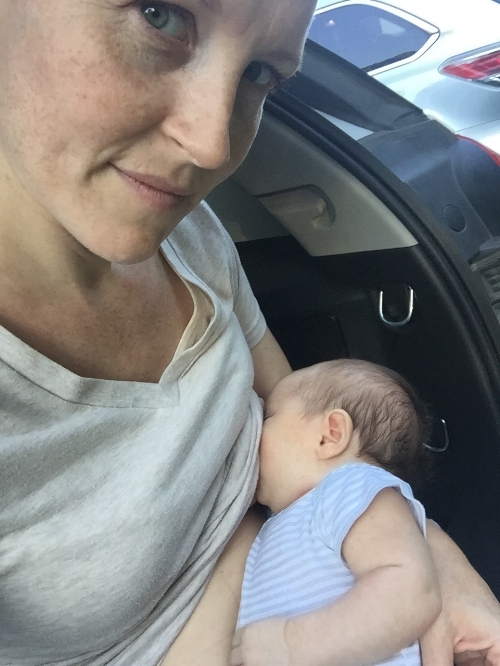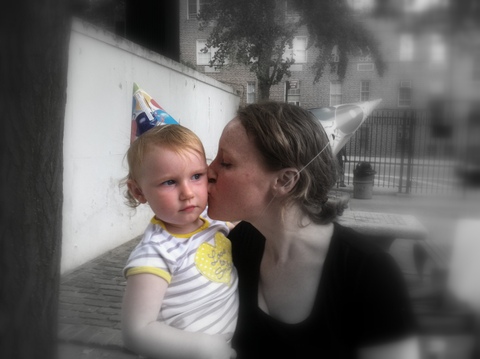I can't help myself. I see an article, blog post or webpage about breastfeeding in public and I head to the comments section. What am I looking for? The ridiculous ones. Comments where individuals make statements, such as, "I support breastfeeding, but why can't she just cover up?" or "that mom is just looking for attention". And then I know it is coming, my blood starts to boil. But I don't comment back (well ok, once I did), because I know perceptions are seldom changed in the comments section of the internet. However, this doesn't stop me from spending too much time in my head formulating the perfect response. Here are my top 6 answers to those who shame moms breastfeeding in public.
1. Be Modest. Oxford Dictionaries contained one of the most specific definitions of modest; (of a woman) dressing or behaving so as to avoid impropriety or indecency, especially to avoid attracting sexual attention. Breastfeeding is not sexual, nor is it indecent - therefore modesty cannot not be used to describe how breastfeeding should occur.
2. It is a private/precious/bonding moment. Sometimes, but not when I am out sipping coffee and trying to keep my toddler in check. By the time my baby is 6 weeks old, I will have nursed her over 500 times. They can't all be private and precious.
3. Use a cover. There are lots of responses to this one. I have yet to read one saying, no one would recommend placing a blanket over a bottle fed baby's face. In fact, many would cite the possibility of suffocation. Try placing a blanket over you bottle fed baby's face in public. That would bring a new level of critique to parenting.
4. I don't go to the bathroom, have sex, etc in public. But you eat in public, right? Why is breastfeeding never compared to eating in public?
5. When I breastfed my child I...You probably also put your baby to sleep on their belly, sat them in a bumbo chair on the counter, used crib bumpers, put rice cereal in their bottles. Your experience is almost certainly - not relevant.
6. But your breasts are sexual. Sometimes they are, but most certainly not while I am breastfeeding. If you are out to keep breasts covered, I heard there is a protest happening over at the local Victoria's Secret...your campaign may be better received over there.
Lastly, in case you missed this somehow, breastfeeding in public is now protected by law in all 50 states. Happy World Breastfeeding Week!



